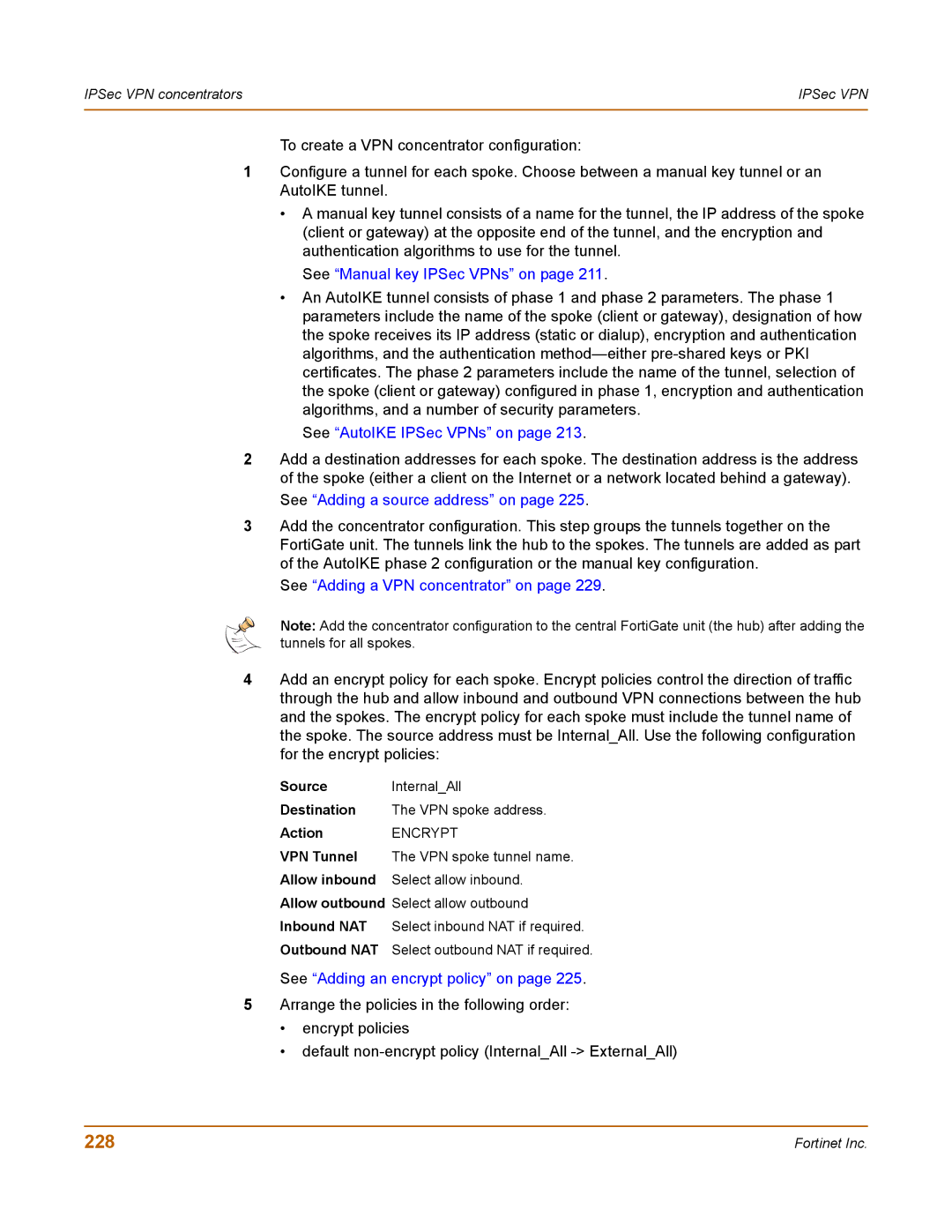
IPSec VPN concentrators | IPSec VPN |
|
|
To create a VPN concentrator configuration:
1Configure a tunnel for each spoke. Choose between a manual key tunnel or an AutoIKE tunnel.
•A manual key tunnel consists of a name for the tunnel, the IP address of the spoke (client or gateway) at the opposite end of the tunnel, and the encryption and authentication algorithms to use for the tunnel.
See “Manual key IPSec VPNs” on page 211.
•An AutoIKE tunnel consists of phase 1 and phase 2 parameters. The phase 1 parameters include the name of the spoke (client or gateway), designation of how the spoke receives its IP address (static or dialup), encryption and authentication algorithms, and the authentication
See “AutoIKE IPSec VPNs” on page 213.
2Add a destination addresses for each spoke. The destination address is the address of the spoke (either a client on the Internet or a network located behind a gateway). See “Adding a source address” on page 225.
3Add the concentrator configuration. This step groups the tunnels together on the FortiGate unit. The tunnels link the hub to the spokes. The tunnels are added as part of the AutoIKE phase 2 configuration or the manual key configuration.
See “Adding a VPN concentrator” on page 229.
Note: Add the concentrator configuration to the central FortiGate unit (the hub) after adding the tunnels for all spokes.
4Add an encrypt policy for each spoke. Encrypt policies control the direction of traffic through the hub and allow inbound and outbound VPN connections between the hub and the spokes. The encrypt policy for each spoke must include the tunnel name of the spoke. The source address must be Internal_All. Use the following configuration for the encrypt policies:
Source | Internal_All |
Destination | The VPN spoke address. |
Action | ENCRYPT |
VPN Tunnel | The VPN spoke tunnel name. |
Allow inbound | Select allow inbound. |
Allow outbound Select allow outbound | |
Inbound NAT | Select inbound NAT if required. |
Outbound NAT | Select outbound NAT if required. |
See “Adding an encrypt policy” on page 225.
5Arrange the policies in the following order:
•encrypt policies
•default
228 | Fortinet Inc. |
